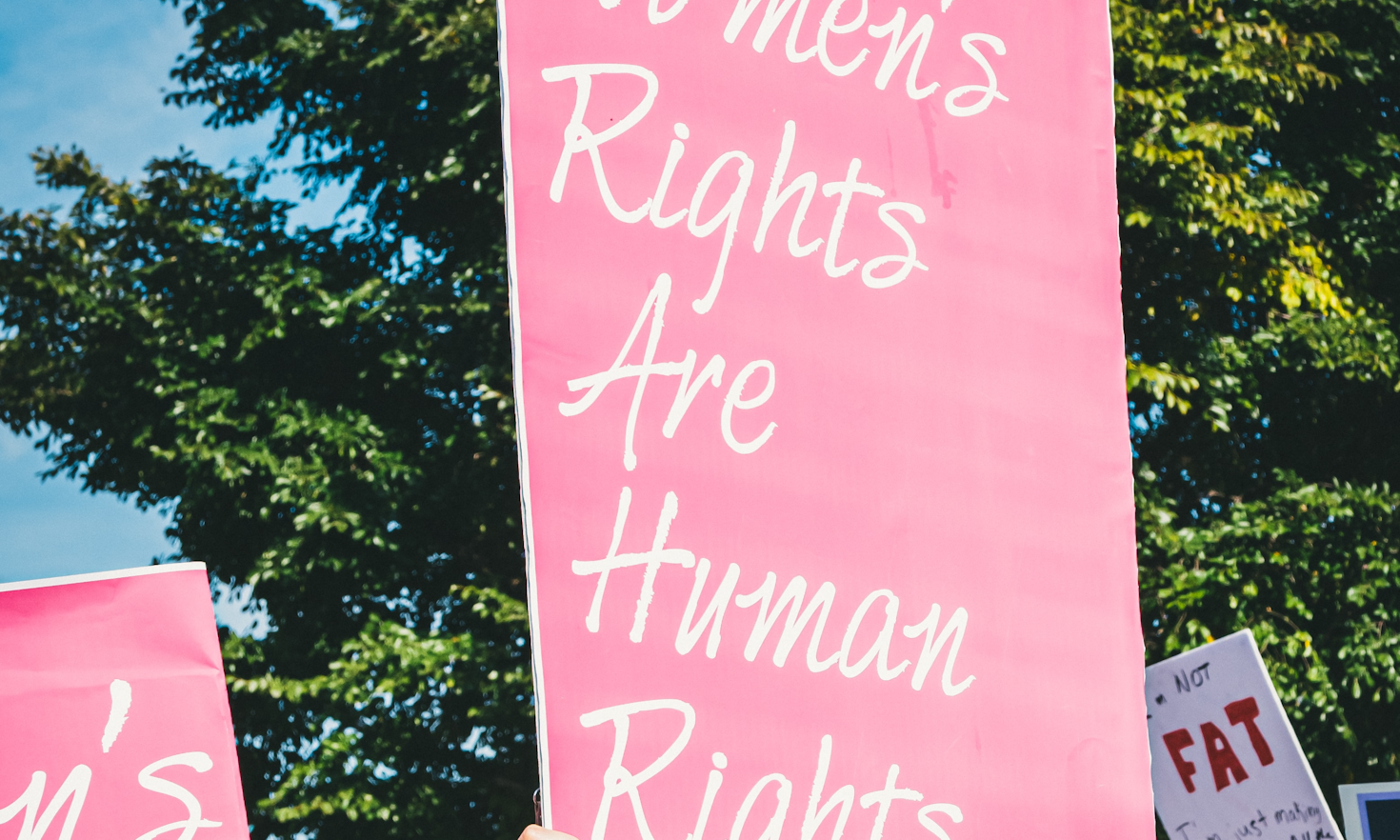
Multi-level governance and the environment in the pandemic era
 Rebecca Nelson
Rebecca Nelson
A short outline
Feminist Foreign Policy (FFP) is complex. It should not come as a surprise really, as this relatively new topic of FFP just became reality barely 10 years ago in 2014 when Sweden’s minister for foreign affairs at the time, Margot Wallström, placed gender equality at the heart of Sweden’s international agenda. The policy centered around three key objectives, often abbreviated to the “3 R’s”. These ‘”R’s” can be found in the Swedish FFP handbook (The Swedish Ministry for Foreign Affairs 2019, pp. 11-12):
Rights: “The Swedish Foreign Service promotes all women’s and girls’ full enjoyment of human rights, which includes combating all forms of violence and discrimination that restrict their freedom of action.”
Representation: “The Swedish Foreign Service promotes women’s participation and influence in decision making processes at all levels and in all areas, and shall seek dialogue with women representatives at all levels, including in civil society.”
Resources: “The Swedish Foreign Service works to ensure that resources are allocated to promote gender equality and equal opportunities for all women and girls to enjoy human rights. The Swedish Foreign Service shall also promote targeted measures for different target groups.”
In addition, the Swedish Foreign Service action plan for FFP defines several areas in which the Swedish Foreign Service is required to contribute to “all women’s and girls’ i) full enjoyment of human rights, ii) freedom from physical, psychological and sexual violence, iii) participation in preventing and resolving conflicts, and post-conflict peacebuilding, iv) political participation and influence in all areas of society, v) economic rights and empowerment, and vi) sexual and reproductive health and rights (SRHR)” (The Swedish Ministry for Foreign Affairs 2018, p.4). These measures and objectives are repeated in the updated version of this action plan on page 3 (The Swedish Ministry for Foreign Affairs 2020). Equally, the action plan outlines guidelines for the internal workings of the Swedish Foreign Service (The Swedish Ministry for Foreign Affairs 2019, p. 19) to serve as a fundament for which grounds Sweden’s foreign actions become ‘believable’.
From this point of departure in 2014, the number of nation states that have announced, adopted, or are discussing a FFP has grown significantly. Besides Sweden, this list includes Canada (Global Affairs Canada 2017, Feminist Foreign Policy Working Group 2021), France (French Ministry for Europe and Foreign Affairs 2018), Luxemburg (Asselborn 2019), Spain (Ministerio De Asuntos Exteriores 2021), the USA (The United States House of Representatives 2020), Mexico (Centro De Investigación Internacional 2020), Colombia (United Nations Women 2022), Chile (United Nations Women 2022), Libya (Bigda 2021, Thompson, Ahmed et al. 2021, p. 18), the Netherlands (SEEK Development 2022), the United Kingdom (The Labour Party 2018), and Germany (Federal Foreign Office of Germany 2022). For many it was the latter that helped ‘dragging’ this topic to more prominence after the last German federal elections in 2021, with the instalment of the current foreign minister Annalena Baerbock and her FFP agenda that also cemented the move (Sozialdemokratischen Partei Deutschlands (SPD), BÜNDNIS 90 / DIE GRÜNEN et al. 2021, p. 144).
When going through this list, some appearances may seem surprising - especially considering that some of the aforementioned countries are not necessarily known for a particularly feminist or gender equal stance. So, what gives? The answer is quite easy:
There is not a ‘Feminist Foreign Policy’.
Radical? Maybe! But while clearly exaggerated and over simplified, the core of the previous statement is technically true - there are in fact multiple approaches to FFP, one of them, admittedly the first, is Sweden’s.
Currently FFP is struggling with the fatal absence of a common definition (United Nations Women 2022) and therefore has no clear measure of when a foreign policy is ‘feminist’.
Essentially is it up to the interpretation of the policy enacting country of what they understand the ‘umbrella term’ FFP to be. And as such, how much or how little policy they want to enact that could be considered feminist and how similar it is to other existing FFPs. Thereby, the term FFP – at least for now – bares the risk and potential of providing the grounds for a what could be called ‘packaging fraud’.
This being said, admittedly it is not easy to find a common definition. Generally, the approach of a FFP sees civil society and human security in the center of international policies very broadly and therefore tries to include the needs of all groups within a society (Achilleos-Sarll 2018, p. 42), as well as making them a part of the policy developing process (Bochel and Evans 2007). And even though working definitions exist, these do not necessarily help to narrow down the scope and pinpoint exactly what a FFP is. This is because FFP definitions span from a focus on human rights and peace, over gender equality, to working towards disrupting the power structures which stem from colonialism, racism and patriarchalism. They do this by expending resources and research as well as working with everyone, on all levels internally and externally (e.g. cf.: Thompson and Clement 2019, p. 7). Therefore, a lot of determination issues arise, which need to be addressed and discussed on the way to a real, common definition of FFP. These issues include, but are not limited to:
Besides individual nation states aiming to be or become an FFP actor, it is also very interesting to look at constructs like the European Union (EU). Especially due to the EUs self-perception and values stated in Article 2 of the TEU (European Union 2012) or the EU Charter of Fundamental Rights (The European Union 2016), and a text adopted by the European Parliament on November 23rd, 2020, that “calls on the European External Action Service (EEAS), the Commission, the EU agencies and member states to systematically integrate gender mainstreaming into the EU’s foreign and security policy” (European Parliament 2020). Additionally, this is because of the interesting inner-EU dynamics and certain member states approach to such a policy, which could undermine the EUs credibility as a strong advocate for feminist policies. This is especially true when looking at certain member states like Poland, where self-declared 'LGBT-Free-Zones' were established in some Polish municipalities as recently as 2016 (Noack 2020).
Therefore, to really understand the scope of FFP – regardless of national adoptions or adoption by the EU - a common definition is necessary. Yet, the more countries are added to the list of (possible) FFP actors, while such a definition is not established yet, the broader and wider the interpretations of this policy approach and its real-life applications become. This makes it harder to comprise the trend and hold all actors to a certain standard and leads to the risk that FFP terminology is in danger of being watered down and used in a misleading way. The negative impacts of this could push real problems that could potentially be tackled with such an approach to foreign policy to the background and thereby lower the chances of strong, impactful initiatives while weakening the terminology itself.
After all, as long as there is no common definition, everyone is right and at the same time wrong in calling themselves FFP actors. The only common ground is that no one really knows what is being discussed when talking about FFP in general, making this relatively new field of studies increasingly challenging.
Achilleos-Sarll, C. (2018). "Reconceptualising foreign policy as gendered, sexualised and racialised: Towards a postcolonial feminist foreign policy (analysis)." Journal of International Women's Studies 19(1): 34-49.
Aggestam, K., et al. (2019). "Theorising feminist foreign policy." International Relations 33(1): 23-39.
Asselborn, J. (2019). Foreign Policy Address. Luxembourg.
Bigda, L. (2021). "Libya Becomes Latest Government to Commit to Feminist Foreign Policy." Retrieved 21.08.2021, 2021, from https://www.icrw.org/press-releases/more-than-30-governments-and-organizations-now-working-to-advance-feminist-foreign-policy-around-the-world/.
Bochel, C. and A. Evans (2007). "Inclusive policy making." Making policy in theory and practice: 105-123.
Centro De Investigación Internacional (2020). Conceptualizing Feminist Foreign Policy: Notes for Mexico.
European Parliament (2020). Fostering gender equality in the EU’s foreign and security policy.
European Union (2012). Consolidated version of the Treaty on European Union.
Federal Foreign Office of Germany (2022). "Inclusion rather than exclusion: What is feminist foreign policy?". Retrieved 20.02.2023, 2023, from https://www.auswaertiges-amt.de/en/aussenpolitik/themen/feministische-aussenpolitik.
Feminist Foreign Policy Working Group (2021). "What we heard - Feedback from discussions on Canada’s feminist foreign policy."
Ferguson, K. E. (2017). "Feminist Theory Today." Annual Review of Political Science 20(1): 269-286.
French Ministry for Europe and Foreign Affairs (2018). France’s International Strategy on Gender Equality (2018–2022).
Global Affairs Canada (2017). Canada’s Feminist International Assistance Policy.
Irsten, G. (2019). "How Feminist is the Swedish Feminist Foreign Policy?". Retrieved March, 5th, 2021, from https://centreforfeministforeignpolicy.org/2019/11/12/2019-11-11-how-feminist-is-the-swedish-feminist-foreign-policy/ .
Ministerio De Asuntos Exteriores, U. n. E. Y. C. n. (2021). Spain's Feminist Foreign Policy - Promoting Gender Equality in Spain’s External Action.
Noack, R. (2020). Polish cities and provinces declare ‘LGBT-free zones’ as government ramps up ‘hate speech’. The Independent.
SEEK Development (2022). "Netherlands holds consultations on new feminist foreign policy." Retrieved Feb, 27, 2023, from https://donortracker.org/policy_updates?policy=netherlands-holds-consultations-new-feminist-foreign-policy.
Sozialdemokratischen Partei Deutschlands (SPD), et al. (2021). "Koalitionsvertrag 2021-2025 (Mehr Fortschritt wagen; Bündnis für Freiheit, Gerechtigkeit und Nachhaltigkeit - Koalitionsvertrag zwischen SPD, Bündnis 90/Die Grünen und FDP)." Retrieved 25.02.2023, 2023, from https://www.bundesregierung.de/resource/blob/974430/1990812/1f422c60505b6a88f8f3b3b5b8720bd4/2021-12-10-koav2021-data.pdf?download=1.
The European Union (2016). The Charter of Fundamental Rights of the European Union. 2016/C 202/02. Brussels, Official Journal of the European Union.
The Labour Party (2018). A new world for the many not the few - THE LABOUR PARTY’S VISION FOR INTERNATIONAL DEVELOPMENT.
The Swedish Ministry for Foreign Affairs (2018). The Swedish Foreign Service action plan for feminist foreign policy 2019–2022, including direction and measures for 2019.
The Swedish Ministry for Foreign Affairs (2019). Handbook Sweden’s feminist foreign policy. Stockholm.
The Swedish Ministry for Foreign Affairs (2020). The Swedish Foreign Service action plan for feminist foreign policy 2019–2022, including direction and measures for 2021.
The United States House of Representatives (2020). House of Representatives Resolution 1147. T. U. S. H. o. Representatives.
Thompson, L., et al. (2021). "Defining feminist foreign policy: A 2021 Update." International Center for Research on Women. https://www.icrw.org/publications/defining-feminist-foreign-policy from http://www.icrw.org/wp-content/uploads/2021/09/Defining-Feminist-Foreign-Policy-2021-Update.pdf.
Thompson, L. and R. Clement (2019). DEFINING FEMINIST FOREIGN POLICY. Washington, DC, International Center for Research on Women.
United Nations Women (2022). "Feminist Foreign Policies: An Introduction." Retrieved 25.02.2023, 2023, from https://www.unwomen.org/sites/default/files/2022-09/Brief-Feminist-foreign-policies-en.pdf.

This content is licensed under a Creative Commons Attribution 4.0 International license.

 Rebecca Nelson
Rebecca Nelson
 Francesco Palermo
Francesco Palermo
 Mattia Bottino
Mattia Bottino